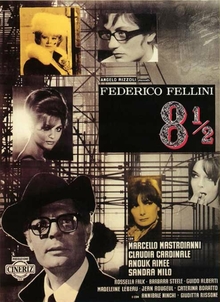
The opening scene of Quentin Tarantino's Inglourious Basterds is so tense, so disquieting, so rife with real human drama that I almost assumed that Tarantino would try something different with this latest film. In this scene and a handful of others scattered across the film, Tarantino's trademark dialogue sounds more subdued and realistic than usual, and he demonstrates his skill at orchestrating tension followed by sudden releases of violence. But the film soon dissolves into an overlong, self-indulgent, violence-glorifying mess, filled with so many film references that one wonders if there is an original thought in the whole film. In short, Inglourious Basterds is just like every other movie Tarantino has made.
The titular Basterds are led by Lt. Aldo Raine (Brad Pitt, in an amusing turn), a soldier from Tennessee whose squad is intent on "doing one thing, and one thing only - killing Nazis." The Basterds eventually get involved with a plot by the British army to blow up a Parisian cinema during the premiere of Joseph Goebbel's new film, which Hitler and the top-ranking Nazis will be attending. The cinema is run by Shoshanna (Mélanie Laurent), a Jew who escaped death at the hands of SS Colonel Hans Landa (Christoph Waltz). Unbeknowst to the Basterds, Shoshanna has her own plot to kill the Nazis.
Inglourious Basterds is a perfect example of a film that is less than the sum of its parts. The ensemble cast - assembled from America, France, and Germany - is terrific. Christoph Waltz in particular is a standout, delivering an alternately funny and terrifying performance as Landa, "the Jew Hunter." The period production design and costuming is exquisite, and Tarantino's eye for composition is undeniable. I keep returning to one inventive shot late in the film, when a shot of a laughing woman's face projected onto a burning movie screen becomes like a ghostly apparition.
But in the end, Inglourious Basterds falls apart due to Tarantino's excesses. The script is unwieldy, with several scenes dragging on far too long. More importantly, Tarantino never establishes a tone, and the film bizarrely shifts from war drama to farce to action movie to parody. There seems to be no unifying vision behind the film, unless it's another opportunity for Tarantino to throw together a bunch of disparate genres and loosely attach them to a storyline. Francois Truffaut once said that a movie must simultaneously express an idea about cinema and an idea about life. Tarantino's films have never bothered with real life, and indeed his movies can often be reduced to a list of their influences, ranging from Jean-Luc Godard to Sergio Leone.
More than anything, Inglourious Basterds reveals what an immature filmmaker Tarantino is. It seems to me that the film possesses no higher artistic goal than to watch Jews beat up Nazis real good. By the final scenes, in which we are treated to close-ups of Nazis being pelleted in the face with machine guns, I felt sickened and numb. Tarantino's films, I think, are essentially escapist entertainment, but his violence is often so graphic that you feel repulsed rather than entertained.
There may have been a time when Tarantino's combination of violence and humor, and his mishmashing of various genres, seemed original. Now it is tired and stale, the product of a director who refuses to grow up. It remains to be seen whether Tarantino will ever put aside his B movies, stop wallowing in his own cleverness, and make a movie that actually means something.
Verdict: **/****

DVD Recommendation: If you want a refreshing antidote to Tarantino, check out Martin McDonagh's In Bruges. That film is as violent, funny, and profane as anything Tarantino has done, but its characters are real people and not broad caricatures. It features a twisty, unpredictable script and the surprisingly effective comic duo of Brendan Gleeson and Colin Farrell. Also check out my brother Matt's excellent blog post about the movie and the differences between McDonagh and Tarantino.





